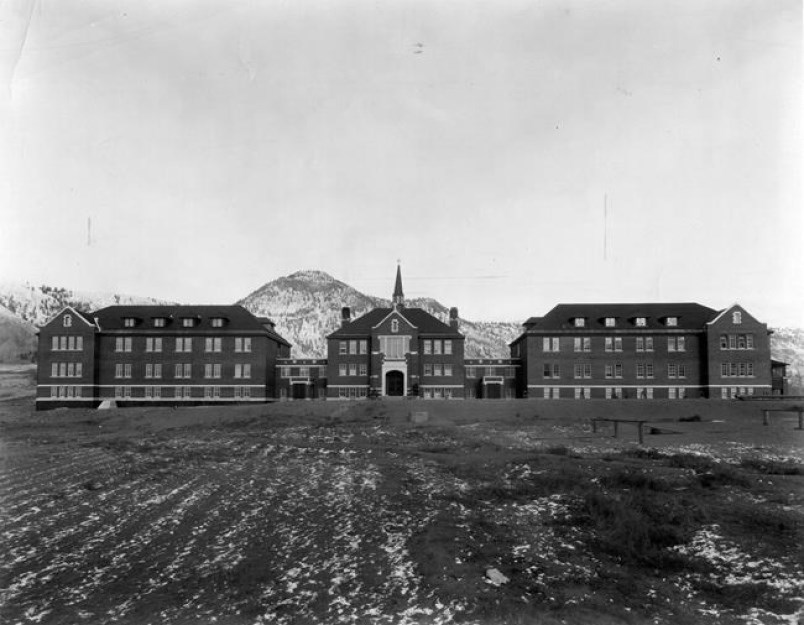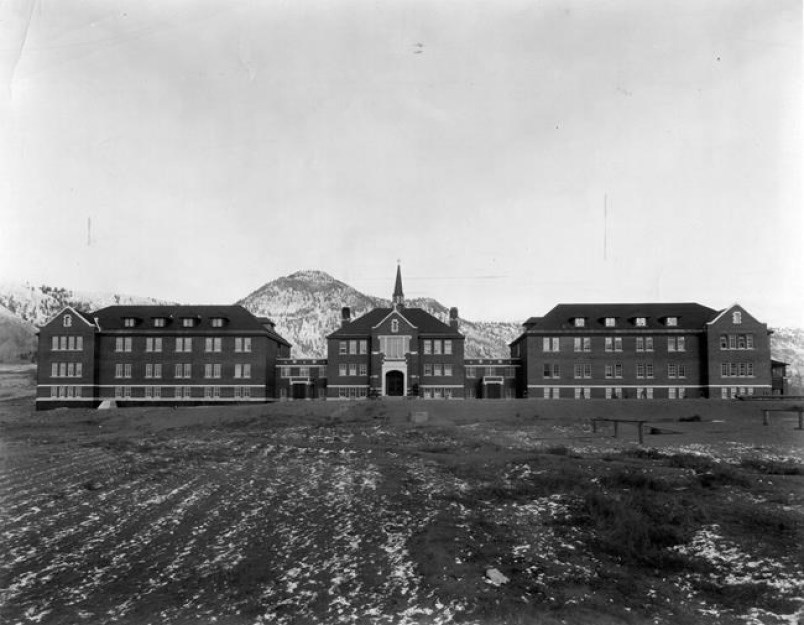
I remember, a few decades ago, the worldwide anger and outrage over ŌĆ£sa╣·╝╩┤½├ĮŌĆÖs National ShameŌĆØ ŌĆö the annual seal hunt off Newfoundland.
How little we knew. If only clubbing a baby seal were as bad as it got.
Over the past half-century, a light has been shining on even greater ŌĆ£shamesŌĆØ in our country: the treatment of Chinese people, the internment of Japanese, turning away a ship carrying Jewish refugees escaping HitlerŌĆÖs Germany, persecution of Sikhs. And thereŌĆÖs been no greater light, or shame, than the treatment of First Nations people, exposed by the Truth and Reconciliation Commission (TRC).
The TRC reported that some 3,200 children died in Indian Residential Schools and that the general practice was not to send the remains back to their home communities. Following the discovery of evidence of more than 200 bodies┬Āat the school it ran in Kamloops, pressure has been mounting on the Roman Catholic Church to issue an apology. Other denominations also ran Residential Schools, but the Catholic Church has been the only one not to apologize.
But I find something strangely hollow about an apology ŌĆö especially since in sa╣·╝╩┤½├Į, apologies roll off official tongues like ŌĆ£Welcome to Wal-MartŌĆØ. Something that I believe is more powerful and meaningful is to say,
Please forgive us
WhatŌĆÖs the difference? Well, apologizing does not necessarily mean owning the deed. It can mean, ŌĆ£IŌĆÖm sorry I did it,ŌĆØ or ŌĆ£IŌĆÖm sorry I hurt youŌĆØ, or ŌĆ£IŌĆÖm deeply sorry for the way others have treated youŌĆØ; but it can also mean, ŌĆ£IŌĆÖm sorry you were hurtŌĆØ, which makes the wronged party responsible for being hurt. You still have a measure of control over the situation.
Asking forgiveness means hanging your heart on your sleeve, surrendering control to the other person, making yourself vulnerable for the sake of making things right.┬Ā
Some might say, ŌĆ£Is it fair to make someone else responsible for your feelings?ŌĆØ No: youŌĆÖre surrendering control over the situation and giving the wronged person an opportunity to release you from culpability, and release themselves from a spiritual burden.
ThatŌĆÖs the power of forgiveness, and itŌĆÖs especially powerful when wrapped up in a testimony regarding something as horrific as the residential schools. When the Kamloops revelations surfaced, a friend of mine, who also ministers on the Downtown East Side, posted an account on Facebook, about a man, who in his testimony of receiving Jesus, talked of being a child in a residential school: ŌĆ£ŌĆ” with Christ in his heart, he confronted the person who had unleashed unimaginable pain upon him physically and mentally. And yet, through all of this, he forgave that person.ŌĆØ
It has always intrigued me how First Nations people have been able to see past the abuse done by churches and still embrace Christ, feel His love, sense His glory and receive His strength and healing.
Please note, though: I am not implying that Indigenous people, organizations or leaders should be expected to grant that forgiveness. It takes time for that to happen. Some years ago, someone asked me to forgive her for something. It took me two years before I summoned up the┬Ācojones┬Āto do so. At that point ŌĆō and not before ŌĆō God moved on the situation. But if it took two years for me to forgive that relatively picayune offence, how much longer would it take people whoŌĆÖve been affected by generations of trauma and abuse?
But it wonŌĆÖt happen at all, if the person or group responsible for that trauma and abuse does not make the first move and ask for the forgiveness. Spiritually, the situation remains at a stalemate.
Instead of another apology, what if there were an official ŌĆ£asking of forgivenessŌĆØ for what the Truth and Reconciliation Commission identified as ŌĆ£cultural genocideŌĆØ? It would give Indigenous people something they havenŌĆÖt had since the Indian Act was brought in: control. WhatŌĆÖs more, I believe that when forgiveness is brought into this picture, we will see God move over this country in ways we canŌĆÖt imagine. ItŌĆÖs like thereŌĆÖs blessing, bottled up, and all it takes is that one good yank to uncork the bottle.
 Drew Snider┬Āis a former pastor at Gospel Mission on Vancouver's Downtown East Side, and has been a guest speaker at churches in BC. He writes about the people and events in his e-book, ŌĆśGod At Work: A Testimony of Prophecy, Provision and People Amid PovertyŌĆÖ. (available at online bookstores)
Drew Snider┬Āis a former pastor at Gospel Mission on Vancouver's Downtown East Side, and has been a guest speaker at churches in BC. He writes about the people and events in his e-book, ŌĆśGod At Work: A Testimony of Prophecy, Provision and People Amid PovertyŌĆÖ. (available at online bookstores)
You can read more articles on our interfaith blog, Spiritually Speaking HERE
Photo is of the Kamloops Residential School



